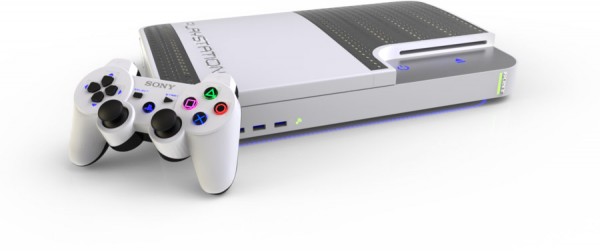- Qualcomm Launches Snapdragon 4 Gen 2 Mobile Platform
- AMD Launches Ryzen PRO 7000 Series Mobile & Desktop Platform
- Intel Launches Sleek Single-Slot Arc Pro A60 Workstation Graphics Card
- NVIDIA Announces Latest Ada Lovelace Additions: GeForce RTX 4060 Ti & RTX 4060
- Maxon Redshift With AMD Radeon GPU Rendering Support Now Available
Sony Rumored to Make Use of Gaikai Acquisition to Stream PS3 Games on PS4
Hot on the heels of the leaked PlayStation 4 controller images comes another rumor that involves Sony making good use of its Gaikai cloud gaming service. According to The Verge, which has relayed a Wall Street Journal article hidden behind a paywall, we could see Sony making use of Gaikai to enable backwards-compatibility on its upcoming console since it’s unable to natively. The CPU rumored to be in the PS4 comes from AMD, which means it’s x86-based, not Cell-based like the PS3. Running software on one architecture that was designed on another is complicated, whereas streaming it isn’t.
At the moment, there are many unknowns surrounding this feature, and it’s not likely until later this week that we’ll learn more, as Sony is holding a press conference on Wednesday which is where we’re expected to learn more about the upcoming console.

The streaming design I’d speculate would involve server farms using native but modified PS3 hardware which can load games on-the-fly by request from a massive digital library. When someone plops a PS3 game into their PS4, Sony phones home, compares IDs, and after a quick download to kick things off, the user can get to playing.
There are of course many ups and downs to a technology like this, with latency being the “con” to top the list. Even with a perfect Internet connection, there’s going to be more latency than there would be natively. Have a family member doing a little torrenting? Good luck trying to get that gametime in. There’s also the continuing problem of bandwidth and broadband speeds in general. In January, CDN Akamai released its “State of the Internet” report which claimed that just 11% of the world’s connected users have a “high-speed” broadband connection, but that’s just half of the battle. Many that do have fast Internet connections deal with strict bandwidth restrictions which could rule out streaming content like games and movies.
Regardless, no one can fault Sony for being unable to offer hardware backwards-compatibility with the PS4 given the differing architecture, but it’s unfortunate nonetheless. The streaming option is better than none at all, however.




